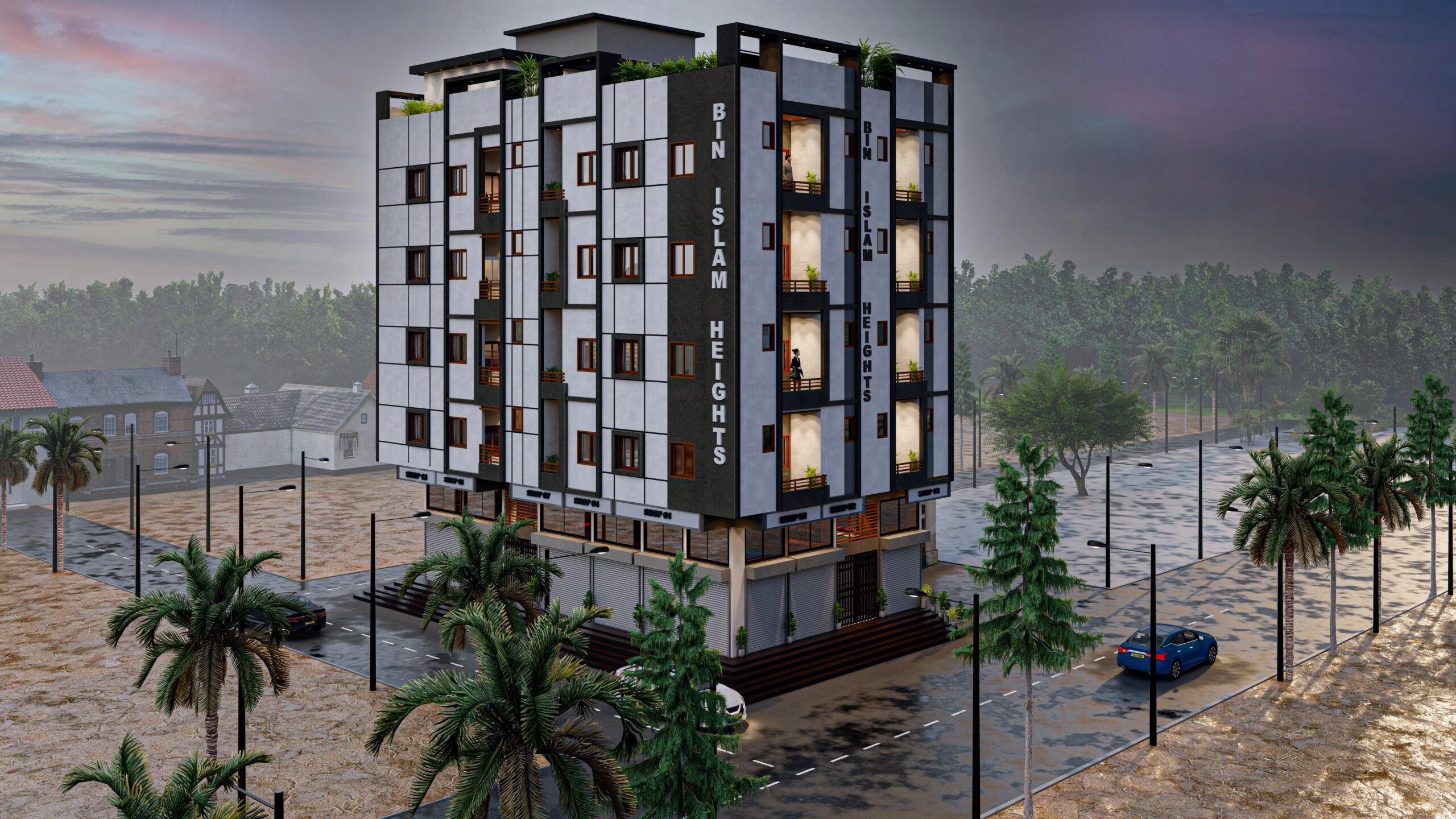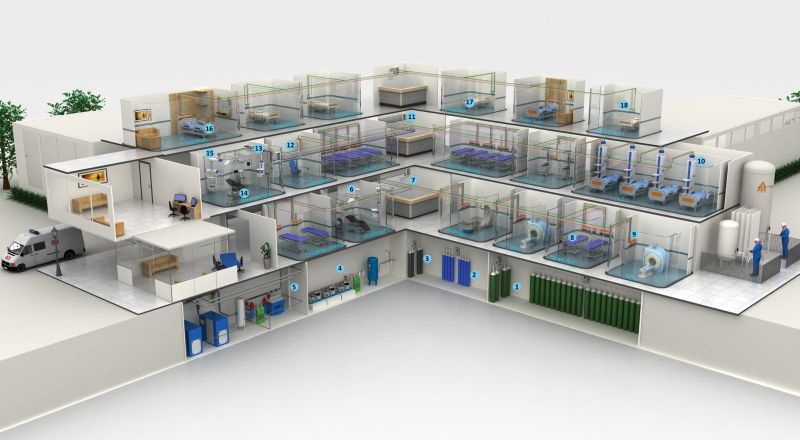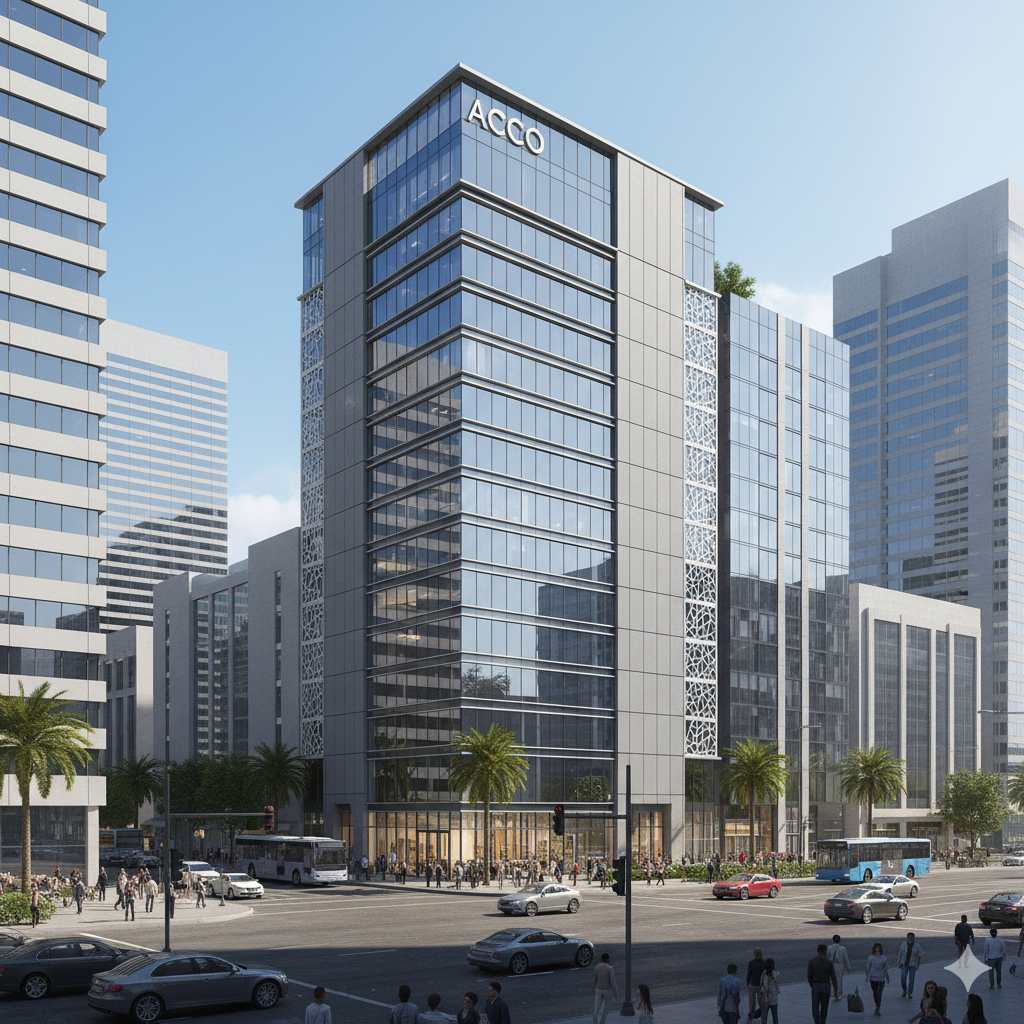
ACCO Planning and Permits: Navigating Lahore’s Building Regulations
| Heading | Sub-Topics |
|---|---|
| Introduction | Overview of Lahore’s Building Regulations, Importance of Proper Planning and Permits |
| Understanding Lahore’s Building Regulations | Regulatory Bodies, Key Regulations, Importance of Compliance |
| Types of Permits Required for Construction | Building Permits, Zoning Permits, Environmental Permits, Special Permits |
| The Planning Phase | Initial Planning, Site Selection, Feasibility Studies |
| Application Process for Building Permits | Documentation Requirements, Application Procedures, Timeline |
| Zoning Regulations in Lahore | Zoning Laws, Types of Zones, Zoning Approval Process |
| Environmental Permits and Considerations | Environmental Impact Assessments, Sustainable Practices, Required Environmental Approvals |
| Special Permits and Approvals | Heritage Buildings, High-Rise Construction, Industrial Projects |
| Navigating the Approval Process | Steps to Secure Approval, Common Challenges, Tips for Success |
| Role of Architects and Engineers | Professional Services, Design Compliance, Technical Support |
| Importance of Adherence to Safety Standards | Building Safety Codes, Fire Safety, Structural Integrity |
| Common Pitfalls in the Permit Process | Frequent Mistakes, How to Avoid Delays, Legal Implications |
| The Role of Technology in Streamlining Permits | Online Applications, Digital Documentation, Tracking and Monitoring Progress |
| Government Policies and Support | Regulatory Reforms, Government Incentives, Support Programs for Builders |
| Case Studies of Successful Projects | Examples of Efficient Permit Acquisition, Lessons Learned |
| Impact of Non-Compliance | Legal Consequences, Financial Penalties, Project Delays |
| Future Trends in Building Regulations | Anticipated Changes, Impact of Urbanization, Sustainability Regulations |
| The Economic Impact of Building Regulations | Cost Implications, Economic Growth, Market Dynamics |
| Comparative Analysis with Global Practices | Lahore vs. Global Building Regulations, Best Practices |
| FAQs | Common Questions and Answers |
| Conclusion | Summary of Key Points, Future Outlook |
Mastering Planning and Permits: Navigating Lahore’s Building Regulations Efficiently
Introduction
Building construction in Lahore is subject to a complex web of regulations designed to ensure safety, sustainability, and proper urban development. Navigating these regulations can be challenging, but proper planning and understanding of the permit process are crucial for successful project execution. This article provides a comprehensive guide to understanding and efficiently navigating Lahore’s building regulations, focusing on the planning and permitting processes essential for commercial construction projects.
Understanding Lahore’s Building Regulations
Regulatory Bodies
In Lahore, several regulatory bodies oversee building construction, including the Lahore Development Authority (LDA), the Environmental Protection Department (EPD), and local municipal corporations. These entities ensure that construction activities comply with established standards and regulations.
Key Regulations
Building regulations in Lahore cover a wide range of areas, including structural safety, fire safety, zoning laws, environmental protection, and heritage conservation. Compliance with these regulations is mandatory for all construction projects.
Importance of Compliance
Adhering to building regulations is vital to ensure the safety and sustainability of structures. Non-compliance can lead to legal penalties, project delays, and increased costs, making it essential for builders to understand and follow the rules.
Types of Permits Required for Construction
Building Permits
Building permits are essential for the construction, alteration, or demolition of any structure. These permits ensure that the proposed construction meets all safety and structural standards.
Zoning Permits
Zoning permits regulate land use and ensure that construction projects are compatible with the designated land use plans. They cover residential, commercial, industrial, and mixed-use zones.
Environmental Permits
Environmental permits are required for projects that may impact the environment. These permits ensure that construction activities comply with environmental protection laws and sustainability practices.
Special Permits
Special permits may be required for certain types of construction, such as high-rise buildings, industrial projects, and heritage sites. These permits often involve additional scrutiny and compliance requirements.
The Planning Phase
Initial Planning
The planning phase is crucial for the success of any construction project. It involves defining project objectives, determining feasibility, and developing a comprehensive project plan.
Site Selection
Selecting an appropriate site is a critical step in the planning process. Factors to consider include zoning regulations, environmental impact, and proximity to infrastructure and services.
Feasibility Studies
Conducting feasibility studies helps assess the viability of a project. These studies evaluate economic, environmental, and technical factors to ensure that the project can be successfully executed.
Application Process for Building Permits
Documentation Requirements
Applying for building permits requires a variety of documents, including site plans, architectural drawings, structural calculations, and environmental impact assessments.
Application Procedures
The application process typically involves submitting the required documents to the relevant regulatory bodies, paying application fees, and undergoing a review process.
Timeline
The timeline for obtaining building permits can vary depending on the complexity of the project and the efficiency of the regulatory bodies. It is important to factor in sufficient time for the review and approval process.
Zoning Regulations in Lahore
Zoning Laws
Zoning laws in Lahore regulate land use and development. These laws classify land into different zones, such as residential, commercial, industrial, and mixed-use zones.
Types of Zones
Understanding the types of zones is essential for compliance. Each zone has specific regulations regarding land use, building height, density, and other factors.
Zoning Approval Process
Securing zoning approval involves submitting an application to the relevant authority, providing detailed project plans, and demonstrating compliance with zoning regulations.
Environmental Permits and Considerations
Environmental Impact Assessments
Environmental impact assessments (EIAs) are crucial for projects that may have significant environmental effects. EIAs evaluate the potential impacts and propose mitigation measures.
Sustainable Practices
Incorporating sustainable practices in construction helps minimize environmental impact. This includes using eco-friendly materials, implementing energy-efficient systems, and reducing waste.
Required Environmental Approvals
Certain projects require specific environmental approvals, such as permits for waste management, water use, and emissions. These approvals ensure that the project adheres to environmental standards.
Special Permits and Approvals
Heritage Buildings
Construction projects involving heritage buildings require special permits to ensure that the historical and cultural significance of the structures is preserved.
High-Rise Construction
High-rise buildings require additional approvals due to their complexity and potential impact on the surrounding area. These approvals address structural safety, fire safety, and urban planning considerations.
Industrial Projects
Industrial projects often involve specific regulations related to emissions, waste management, and worker safety. Obtaining the necessary permits ensures compliance with these regulations.
Navigating the Approval Process
Steps to Secure Approval
Securing approval involves several steps, including submitting detailed project plans, undergoing inspections, and obtaining necessary clearances from various regulatory bodies.
Common Challenges
Common challenges in the approval process include delays due to incomplete documentation, changes in regulations, and opposition from local communities.
Tips for Success
To navigate the approval process successfully, it is important to maintain clear communication with regulatory bodies, ensure complete and accurate documentation, and seek professional assistance when needed.
Role of Architects and Engineers
Professional Services
Architects and engineers play a vital role in ensuring that construction projects comply with regulations. They provide design services, prepare technical documents, and oversee construction activities.
Design Compliance
Ensuring that the design complies with building codes and regulations is crucial. Architects and engineers work together to create designs that meet all safety and regulatory standards.
Technical Support
Technical support from architects and engineers includes site analysis, structural calculations, and technical inspections, which are essential for securing permits and approvals.
Importance of Adherence to Safety Standards
Building Safety Codes
Building safety codes set the standards for structural integrity, fire safety, electrical systems, and other critical aspects of construction. Compliance with these codes is mandatory.
Fire Safety
Fire safety regulations include requirements for fire exits, alarms, sprinkler systems, and fire-resistant materials. These regulations are designed to protect occupants and property.
Structural Integrity
Ensuring the structural integrity of buildings involves adhering to engineering standards and conducting regular inspections to detect and address any potential issues.
Common Pitfalls in the Permit Process
Frequent Mistakes
Common mistakes in the permit process include incomplete applications, incorrect documentation, and failure to comply with specific regulations. These mistakes can lead to delays and increased costs.
How to Avoid Delays
To avoid delays, it is important to thoroughly understand the permit requirements, maintain accurate documentation, and seek professional advice when necessary.
Legal Implications
Non-compliance with building regulations can result in legal penalties, including fines, project stoppages, and even demolition orders. It is crucial to adhere to all regulatory requirements to avoid such consequences.
The Role of Technology in Streamlining Permits
Online Applications
Many regulatory bodies in Lahore now offer online application systems, making it easier to submit and track permit applications. This technology streamlines the process and reduces paperwork.
Digital Documentation
Digital documentation allows for efficient storage, retrieval, and sharing of project plans and permits. This reduces the risk of lost or misplaced documents and speeds up the review process.
Tracking and Monitoring Progress
Technology enables real-time tracking and monitoring of permit applications, allowing builders to stay informed about the status of their applications and address any issues promptly.
Government Policies and Support
Regulatory Reforms
The government of Lahore has introduced several regulatory reforms to simplify the permit process and promote compliance. These reforms aim to make the process more transparent and efficient.
Government Incentives
Incentives such as tax breaks, subsidies, and grants are available to encourage builders to adopt sustainable practices and comply with regulations.
Support Programs for Builders
Support programs provide builders with resources and assistance to navigate the regulatory landscape. These programs include training sessions, informational workshops, and advisory services.
Case Studies of Successful Projects
Examples of Efficient Permit Acquisition
Several successful construction projects in Lahore have efficiently navigated the permit process. These projects demonstrate the importance of thorough planning, professional assistance, and adherence to regulations.
Lessons Learned
Key lessons from these case studies include the importance of early engagement with regulatory bodies, maintaining accurate documentation, and addressing potential challenges proactively.
Impact of Non-Compliance
Legal Consequences
Non-compliance with building regulations can lead to severe legal consequences, including fines, legal disputes, and demolition orders.
Financial Penalties
Financial penalties for non-compliance can be substantial, impacting the overall budget of the project and leading to increased costs.
Project Delays
Failure to comply with regulations can result in project delays, which can disrupt timelines, increase costs, and affect project viability.
Future Trends in Building Regulations
Anticipated Changes
Building regulations are expected to evolve in response to urbanization, technological advancements, and environmental concerns. Future regulations will likely emphasize sustainability and safety.
Impact of Urbanization
Rapid urbanization in Lahore will drive changes in building regulations to ensure that construction activities support sustainable urban development.
Sustainability Regulations
There will be an increased focus on sustainability regulations, promoting green building practices, energy efficiency, and reduced environmental impact.
The Economic Impact of Building Regulations
Cost Implications
Compliance with building regulations can increase project costs due to permit fees, additional documentation, and required modifications. However, it also ensures long-term savings by reducing risks and improving building quality.
Economic Growth
Effective building regulations contribute to economic growth by promoting safe and sustainable construction practices, attracting investment, and supporting urban development.
Market Dynamics
Building regulations influence market dynamics by setting standards for construction quality and sustainability. Compliant projects are more likely to attract buyers and investors.
Comparative Analysis with Global Practices
Lahore vs. Global Building Regulations
Comparing Lahore’s building regulations with global practices provides insights into best practices and areas for improvement. It highlights the need for continuous regulatory reforms to keep pace with international standards.
Best Practices
Adopting best practices from global building regulations can enhance compliance, improve project outcomes, and promote sustainable development.
FAQs
What types of permits are required for construction in Lahore?
Various permits are required, including building permits, zoning permits, environmental permits, and special permits for high-rise or heritage buildings.
How long does it take to obtain a building permit in Lahore?
The timeline for obtaining a building permit varies but typically involves several weeks to months, depending on the complexity of the project and the efficiency of the regulatory bodies.
What are the common challenges in the permit process?
Common challenges include incomplete documentation, delays in approvals, and non-compliance with specific regulations.
How can technology streamline the permit process?
Technology streamlines the permit process through online applications, digital documentation, and real-time tracking of application status.
What are the consequences of non-compliance with building regulations?
Non-compliance can result in legal penalties, financial fines, project delays, and even demolition orders.
How do building regulations impact economic growth?
Building regulations promote safe and sustainable construction practices, attract investment, and support urban development, contributing to economic growth.
Conclusion
Navigating Lahore’s building regulations requires a thorough understanding of the permit process, compliance requirements, and the role of various regulatory bodies. Proper planning and adherence to regulations are essential for the successful execution of construction projects. By leveraging technology and seeking professional assistance, builders can streamline the permit process, avoid common pitfalls, and ensure the timely completion of their projects. Looking ahead, continuous regulatory reforms and the adoption of best practices will further enhance the efficiency and sustainability of Lahore’s construction industry.




